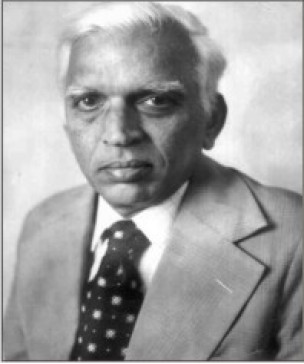V.V. Chenulu

| Name | V.V. Chenulu |
| Designation | President |
| Complete postal Address with city code | Indian Phytopathological Society |
| Email IDs | xyz@gmail.com |
| Mobile No. | 123456789 |
Brief Biodata
Professor Vedula Venkata Chenulu, a Nationally and Internationally recognised Plant Pathologist expired on 6 September 1999 at Hyderabad after a prolonged illness. The agricultural science in general and Plant Pathology in particular has suffered an enormous loss by his demise.
Professor Chenulu was born on 1st July 1926 at Bobbili Village in Vizianagaram, district of Andhra Pradesh. He did his schooling at Municipal High School, Anakepalle and Mrs. A.V.N. Collge, Vishakhapatnam. He graduated in Agriculture from Govt. Agricultural College, Coimbatore (Madras University) in 1949. Later, he joined the Indian Agricultural Research Institute (IARI), New Delhi and obtained Associateship in Mycology and Plant Pathology in 1951 in first division. After his Post-Graduate studies, he joined the Sugarcane Breeding Institute, Coimbatore in 1952 as Research Assistant. From 1956 to 1959, he was at the Deparment of Plant Pathology, University of Illinois, Urbana ( U.S.A.) as a graduate student and completed his Ph.D. degree in Plant Virology with Prof. H.H. Thornberry, a renowned Virologist. After return from U.S.A., he joined the post of Assistant Botanist at Sugarcane Breeding Institute, Coimbatore.
Professor Chenulu joined as Mycologist at IARI in 1960. Later, he was selected as Virus Pathologist in 1964. In 1968, he was selected as Professor of Plant Pathology at IARI, New Delhi and subsequently was elevated to the position of Head, Division of Mycology and Plant Pathology in 1975 and continued in this position till 1979. In between, he held the charge of Dean, P.O. School, IARI, New Delhi. He retired from active service on June 30, 1986. Professor Chenulu's contribution to plant pathology is enormous. To name a few, he investigated sources of resistance in sugarcane against red rot, smut and mosaic virus and also developed techniques for control of moulds in alkathene packing of sugarcane setts. As Mycologist in-charge, assessment of losses due to plant diseases, he developed many useful information. In the latter part of his carreer, he devoted his energy on viruses and phytoplasmas infecting plants. He characterised important viruses affecting vegetables, pulses, ornamental crops and medicinal plants and developed methods for their management by way of developing resistant varieties, therapeutic and cultural methods. His major interest was in the area of physiology of virus infected plants and host-parasite relationship. Professor Chenulu's continued interest in Plant Virology was reflected in the establishment of an Advanced Centre for Education and Research in Plant Virology in 1983 at IARI with the financial assistance of UNDP/FAO. The infrastructure and trained scientific manpower in plant virology and advancement in this specialised area is the net result of his efforts and dream. As a Sub- Project Coordinator of the Advanced Centre for Plant Virology, Professor Chenulu identified suitable laboratories and scientists for active collaboration in plant virology research and education and arranged exchange visits of collaborating scientists to India and Fellowship of the Indian scientists abroad. With the help of expertise in the field of virus education and research and the mentor of the Advanced Centre Prof. van der Want, a useful curriculum was developed for teaching plant virology.
Professor Chenulu was an excellent teacher and researcher. He guided over 20 M.Sc. and Ph.D. students. His students are occupying very high positions not only in India but also in several foreign universities and organisations. He published over 100 scientific papers in Journals of repute, both national as well as international.
I had an opportunity to work under his Chairmanship for my Ph.D. degree and continued my association with him on the ongoing research projects. I found him an excellent guide. His innovative ideas prompted me to do research in citrus virology which led to publicaiton of several research papers with joint authorship. We worked together for a period of 20 years and due to his rare human qualities, apolitical and highly ethical attitude, our relationship of student- teacher turned into family friendship. Similarly, he had very good relation with his colleagues in the Division and Institute.
Professor Chenulu
visited several laboratories in U.S.A. and Europe as visiting Professor under
Rockefeller Foundation Travel grant and UNDP. He was associated with more than
a dozen scientific societies in India and abroad. He was Secretary and Editor,
Indian Phytopathological Society and President of the Society in 1983. He
served as member of the Academic Council of IARI, and also Institute's
Executive Council and Board of Management. He was a Member of the Board of
Studies at Banaras Hindu University, CSAU, Kanpur and Udaipur University. He
organised national and international symposia and seminars on Plant Pathology.
He was a very good organiser, administrator, voracious reader, excellent
orator with immense leadership qualities. Professor Chenulu will always be
remembered by the scientific community, his friends and colleagues for his
scientific traditions and rare human qualities.